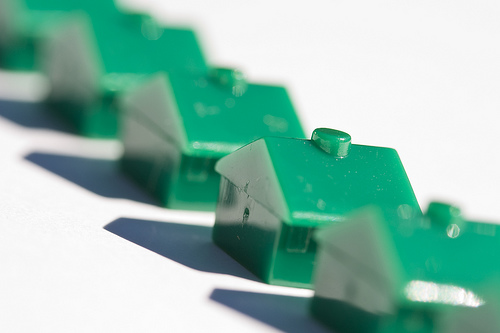I just watched a fascinating series on ABC TV based on the book “The Ascent of Money: A Financial History of the World” by Professor Niall Ferguson.
Episode 5 of the “Ascent of Money” series focuses on the housing/property market and explains why the idea of your family home as a pension/insurance policy is really flawed – a bet on bricks and mortar is anything but “as safe as houses”.
In the English speaking world world we tend to think of property as a one way bet – the simplest way of getting rich is to play the property market. In fact you’d be a mug to invest your money in anything else
But the remarkable thing about this supposed truth is how often reality gives it the lie because like stock markets, property can soar in value only to crash in the most spectacular way.
In Britain from 1989 to 1995 the average house price fell by 18% .. but that’s nothing compared to Japan where property prices rose by 300% between 1985 and 1990.
Many Japanese rushed to catch this surging wave to lead them to a guaranteed fortune … but it wasn’t a wave, it was a bubble because property prices then fell 75% wiping out all the previous gains.
As an example Ferguson visited an apartment for sale in a up market area of Tokyo currently valued at US$1 million. In 1990 before the crash in prices it would have sold for US$3 million. 19 years later it’s still only worth 1/3rd of that value.
As assets go, houses are pretty illiquid, you can’t sell them in a hurry if you get in a financial jam. So no, property isn’t a uniquely safe investment. House prices can go down as well as up.
The real flaw in the idea of a property owning democracy, as the recent “sub prime mortgage” disaster has proved, is that the housing market, like any market, is prone to booms and busts.
So anyone who thinks that property prices will inexorably continue to rise forever … is setting themselves up for a huge disappointment.
You can watch episode 5 below, buy the Ascent of Money DVD set from Chaos.com or the book The Ascent of Money: A Financial History of the World by Professor Niall Ferguson from Amazon.com


Leave a Reply